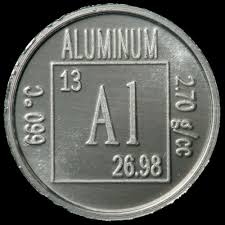Falling sperm counts and rising infertility are phenomena that have been observed for decades in the developed world. Today, researchers estimate that up to twenty per cent of young men have a low sperm count defined as fewer than 20 million sperm per millilitre and it is the main problem for about one in five couples having trouble conceiving and a contributing factor to an additional one in four cases.
Most research has pointed to environmental factors that disrupt hormones such as BPA in plastics and birth control in drinking water as possible causes underlying climbing male infertility. Smoking, pesticides and psychotropic drugs have all been implicated too. But a new study suggests that the ubiquitous household metal aluminum may be a leading culprit for dropping sperm counts.
At the Eleventh bi-annual Keele Meeting on aluminium, a gathering of about 75 aluminum researchers from all over the world held in Lille, France this month, French researcher Jean-Philippe Klein presented his findings on the impact of aluminum on sperm, published recently in the journal Reproductive Toxicology. Klein and his colleagues at the University of Lyon and leading British aluminum researcher Christopher Exley at Keele University in England analyzed the aluminum content of semen samples from 62 men who were seeking help for fertility issues and found high concentrations of the metal – especially in semen of men with low sperm counts. What’s more, fluorescently-stained aluminum was clearly visible microscopically; settled in the DNA-rich heads of the sperm, raising questions about its impact on the ability of sperm to fertilize an egg and the effect of that aluminum on newly developing embryos.
The aluminum in DNA-rich sperm heads is stained blue by lumogallion.

